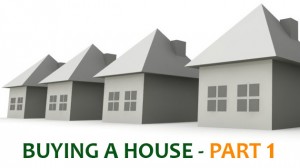 When buying a home, you buy real estate When buying a home, you buy real estate
When we use the term real estate, we are talking about buying a home, piece of physical property, a building, piece of land, or even a part of a building (like a condo). It can include buying and owning vacant land, a home, commercial building, condominium, or even a part of a dock you can own to park your boat. There are three terms generally used which you must understand when you buy a home or investment property.
1. Fee Simple. This means that if you buy it, you own the property and anything on the property until you, or your ancestors sell it. The only exception is in some states you do not own the right to any valuable minerals, say gold or oil, found on the property.
2. Lease Hold. This is where some corporation, individual or government owns the land, but you buy a “long-term lease” and can use the land and buildings anyway you see fit. This can save you money from putting up large buildings, and allows you to move into industrial and “great location”areas, which are typically only available on leased land (very common in Hawaii, and ocean front properties). Sometimes properties are sold with just a few years left on the lease, and it’s up to you to renegotiate with the owner when the lease is up. The good thing about a long-term lease is there are some positive tax implications for companies, are cheaper in the long term than renting, and the owner of the lease usually gets to be the first person to renegotiate the lease when it expires.
3. Lease with an option to buy. This is the same as leasehold, but at a certain point in time there is a clause for you to buy the property outright. This is more common in residential homes, since the owner can get a larger deposit, which secures the lease, and then regular rent money each month. The buyer benefits because they get the chance of buying a home without having a large down payment required by most banks. They can also break the lease if they decide they don’t want the home, but forfeit their initial large deposit.
 When buying a place to live, what kinds of real estate should I look at? When buying a place to live, what kinds of real estate should I look at?
When you buy, or sell a property, the government basically dictates what can be done on that property through zoning laws. Some property zoning requirements can be changed, which we will cover later. Some areas are also called mixed-use where a mixture of properties can be found in a small area. When you’re buying a home or any kind of real estate, it is important to decide why you are buying it.
1 The first questions you should ask are: “Do I want to live there with myself or my family, use it for income, start a business, work with large groups of animals or plants, or even start some large business endeavor. Remember each one of these questions will decide what type of property you need.
2 The next question is how much can you afford. Most people do not buy a property outright, but negotiate some type of payment system with a bank, institute, or even the property owner. Remember you need to have enough for the down payment (10 – 30%), and good enough credit to get a loan (determined by a number system called a credit score). Without these it’sawfully hard to buy a property.
When it comes to real estate there is basically three categories (called zones):
1. Residential: When are buying a home it is typically in a residential area. This includes any type of land or building that is primarily used as a living space. Basically they include land or buildings designed for single family and multi-family living spaces.
2. Commercial/Industrial: This includes land or buildings that can be used to sell, manufacture, or develop anything that is bought and sold. Commercial land and buildings can be grouped in a specific region, or scattered around residential areas and include stores, malls, shopping centers, offices, and wholesale/retail outlets. Industrial land and buildings are mostly found in a certain areas where larger manufacturing, processing, product development, and mining facilities are found.
3. Agricultural: These include typically rural areas where you find farms, ranches, vineyards, orchards and other areas that have plants and animals used for consumption. When you buy an agricultural property it’s important to find out what you can build on the property, since most agricultural property must have residential/commercial clauses written into the zoning requirements for the building of a home to live in, or a place to sell your items.
 When buying a home is location that important and is it the same in each country. When buying a home is location that important and is it the same in each country.
Everything bought or sold in the world is done on some type of market. In some countries its considered an asset in some a liability. The Real Estate Market is no different, and there are many people out there to help. It also depends on real estate laws practiced in each country. It would take a long time to discuss the rules in each country, and sometimes they change radically country to country. There are a few things to remember.
1. How stable is the country or area in which you are buying a home. Unstable countries can change entire governmental structures, and you could lose the property, or even be held accountable for what is done on the property even if it was legal before. Most countries limit foreign ownership, and the same rules don’t apply to everyone.
So when buying a home don’t believe everything that is told you, even by government officials. Always do extensive research, and get everything in writing, and signed if possible - especially from government officials, the countries rules and regulations about foreign ownership, and the names of the people you do business with.
2. Buying a Home - Tax, Insurance, and legal implications. One fairly consistent rule in real estate is people are taxed and insured differently depending on the owner’s legal status. Many times the tax laws are determined by your legal status ie. natural-born citizen, permanent resident, foreigner, citizen by marriage, which region or state you live in etc. You may pay the same amount for the property as a citizen of that state or country, but pay a different tax entirely. Some countries and states even require that you purchase different insurance on the property. So remember it may sound like a great deal, but after you factor in taxes, insurance and legal obligations, it could be a very bad deal.
3 Buying a Home - Location, Location, Location. It may sound like an overused cliché, but it is true none the less. For some reason people just love to own property that directly borders water. A property right on the beach or lake can go for many times more than one down the street, or even just across the street. A house with an ocean or mountain-view could sell a bit higher than the next door property that doesn’t.
Any piece of land or building that has a location more suitable for the intended purpose of the zoning like –corner lots which provide more driveway access for a commercial property, single or multi-family residential buildings near colleges that have high traffic, residential land in higher income areas or that borders parks or limited access areas, agricultural properties near water sources or in high sunlight areas, and even an industrial facilities closer to expandable utility access can be very expensive than those which don’t.
For more information on Buying a Home.
|
|